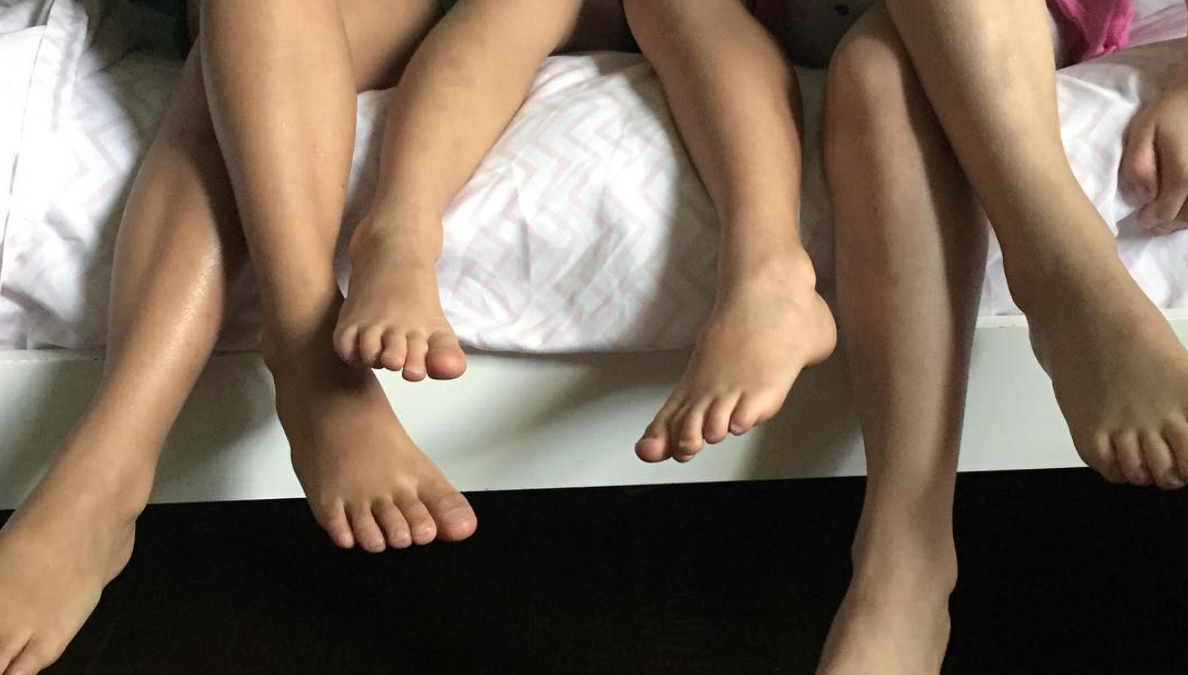
Fear and Failure: My Lowest Point as a Foster Parent
There is real risk for families entering foster care. Sometimes the risk is superficial. We risk giving up the life we’ve always known, a life of certain privileges. We risk entering into hard spaces with children and families that have experienced struggles we cannot even fathom enduring. We risk giving up our narrow worldview when we enter into the realities of child welfare.

There are also other risks that we have to weigh when we invite a child into our home. We know that these children have experienced trauma and possibly abuse or neglect. Sometimes the trauma behaviors are manageable or unseen at first. Sometimes a child will act out in ways that quickly become overwhelming for us as parents and for others in our home. The outbursts and tantrums and attempts to cope and protect may be scary to us, confusing, or even appalling from our vantage point. When this happens we can quickly grow to fear we have risked too much, put our family in an unsafe situation or at the very least an uncomfortable one. And the fear becomes very real- often not helped by others telling us, “well, you signed up for this.”
I’ve been a foster parent for almost two-and-a-half years. We’ve welcomed 18 children into our home for varying amounts of time. These kids have been anywhere from a few months old to pre-teens. Each story is unique and they are not mine to share. But, I’ve learned that each child has experienced a much different childhood than I did. They carry those experiences and memories with them- some good and some bad – through life. They wrestle with being separated from their loved ones. They struggle with the desire to bond with us while feeling guilty for bonding with someone other than their parents.
Each of those 18 kids have been precious, sweet, loving, and kind children. We have found ways to connect with them, grow to love them, and bond with them over time. We have used counseling and resources, sought services, and doctor’s recommendations to help ease trauma and trauma behaviors. We are not experts, we are not heroes, we are just normal parents doing our best.
And often with love and time plus the help of case workers and professionals, we see improvements in behaviors. But sometimes we don’t.
There have been days that I wanted to throw in the towel. That I wanted to quit. Honestly, there have been multiple times that I have called the case worker and said, “I don’t think that I can do this anymore.” And most times, I calm down. I find a solution. I take a breath and reset. We wake up and start over.
But there was a time that I couldn’t continue. I knew that no amount of intervention that I could offer was going to give two young children in my home what they needed. They needed more. Their family deserved more from me.

So often, I hear people ask, “what happens if a child is in my home and it’s not working out?” It’s a legitimate question. We can judge all we want. Point fingers and tell them to read this book or that one, use this method or another. We can tell them to be patient or fight harder, ease up or be more strict. But long-term, that’s simply not helpful.
While it completely and utterly broke my heart to have to request for these children in my home to be moved, I believed in that moment that it was the right thing to do. It was the right thing for them. It was the right thing for the other children in my home. It was the right thing for me. I do not take placement disruption lightly. Honestly, I believe that permanency and stability is of the utmost importance for children in care. I take my role as a foster parent seriously. But I am no superhero. I cannot be everything always. I have to recognize my limitations and admit when I’ve been defeated. It’s not easy, but I have to do it for the sake of the kids because they are the whole point. It is about the kids. As the family works towards reunification, which is the ultimate goal because the best place for the children to be is with their parents as long as it is safe, they deserve my very best and full attention.
Kids deserve to be fully loved, fully cared for, and to be given the time, attention, and resources they need to thrive! If I cannot offer that, I am not the best mom for the job. Someone else is! In this case in particular, I was very lucky to learn that the siblings were able to be moved to a therapeutic home where they would remain together. Being the only kids in the house with a stay-at-home parent, they were thriving.

So yes, if you have tried your best, sought every resource available, and worked with a child’s case worker and/or other professionals, you can request for them to be placed in another home. In truth, you can request for them to be moved without trying everything – but, I certainly don’t recommend that. You enter into foster care accepting that there will be risks, that this will be hard. But, at the end of the day, your health, safety, and sanity is important. Your family’s health and happiness is important. And the kids in your care deserve to be healthy and happy as well.



